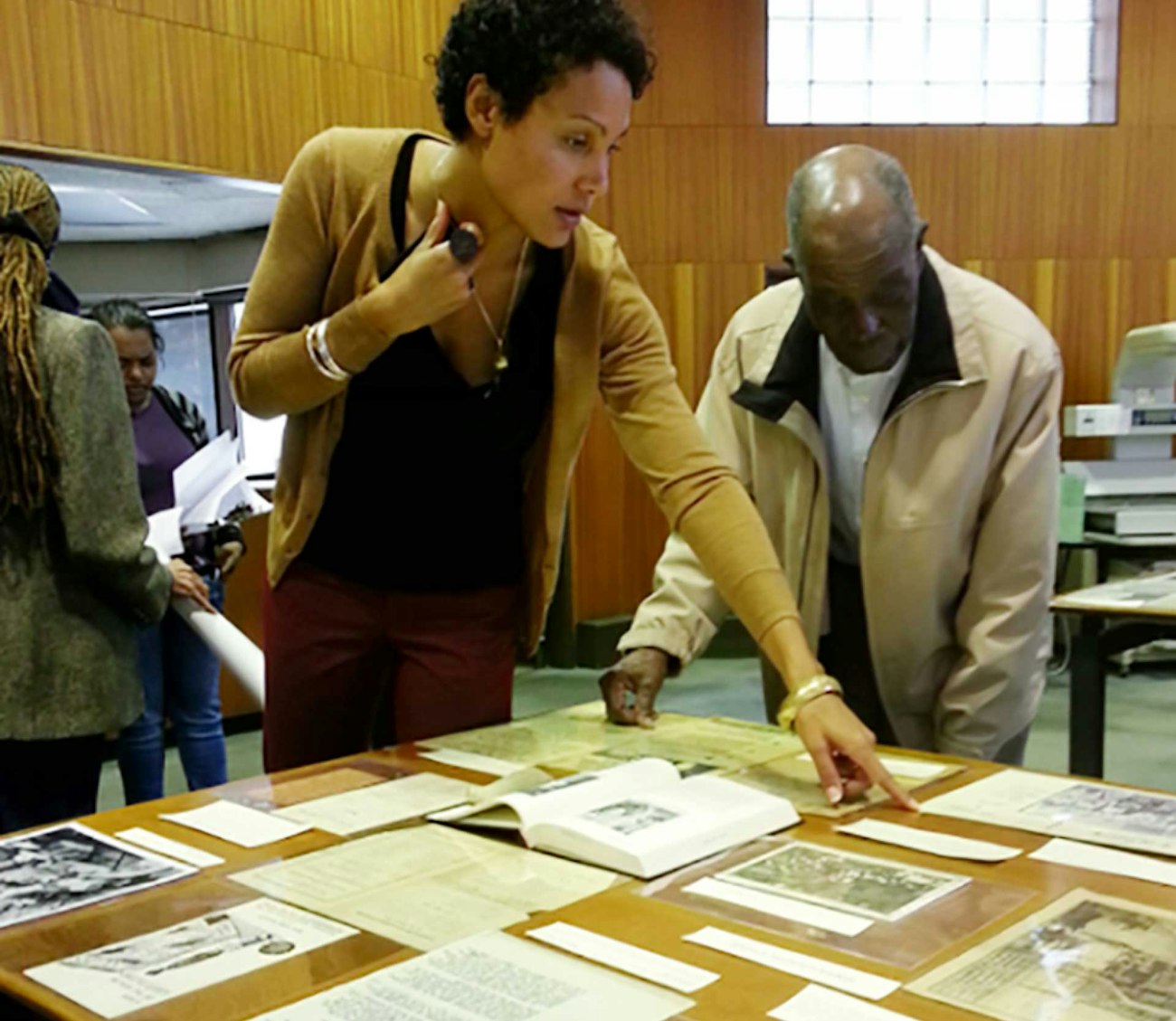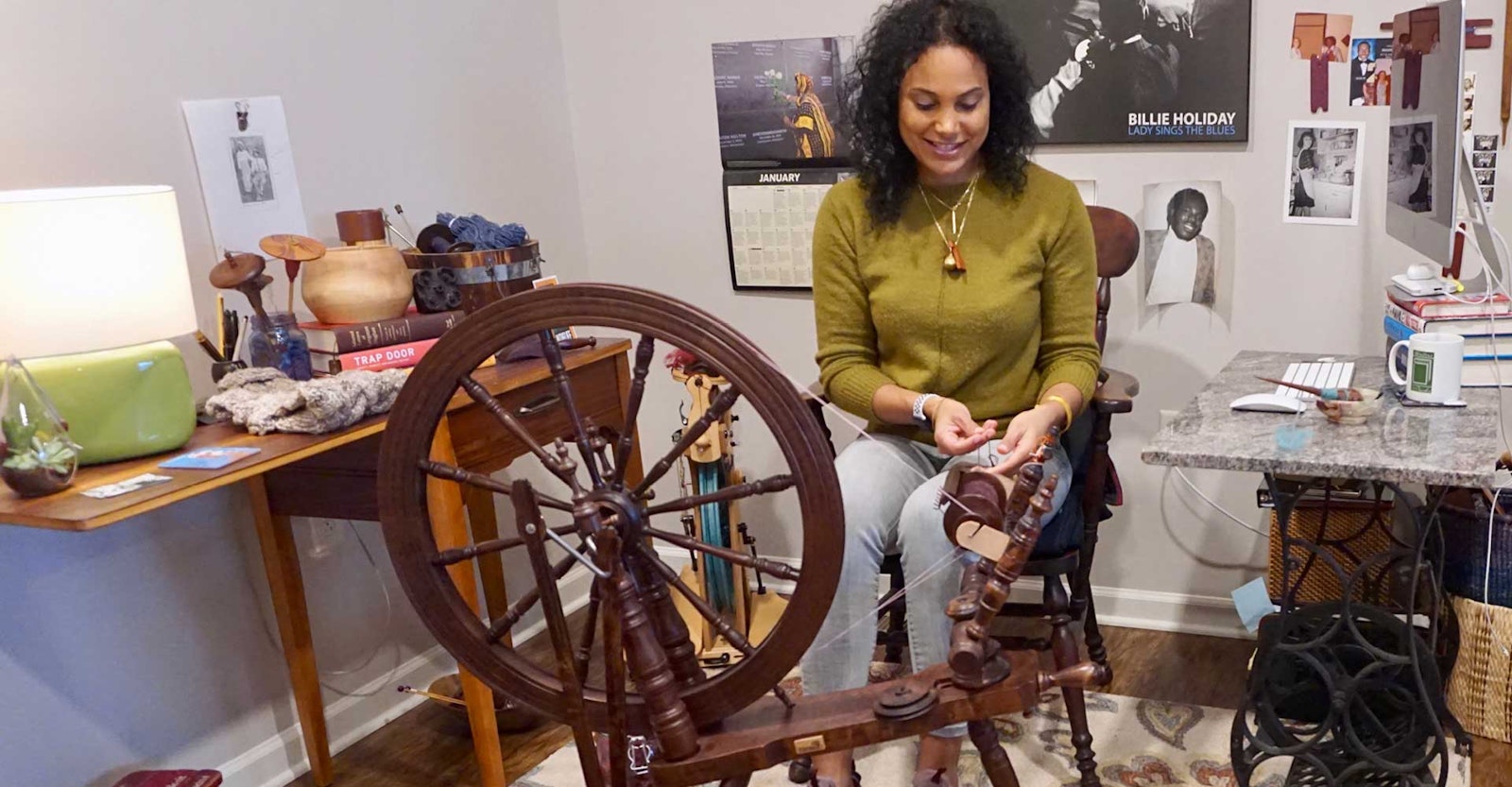Tell us about your day job.
I am the Joseph N. Lambert and Harold B. Schleifer Director of Rare Books, Special Collections, and Preservation at the University of Rochester in New York. I am also the cofounder of the Nomadic Archivists Project, an initiative devoted to developing relationships and beginning conversations around preserving legacy, memory, connection, and trust in the African diaspora. This is an exciting career to be in, allowing me to actively engage in archiving and preserving our shared cultural heritage. Special collections are important because they speak to the human experience—past, present, and future. Living through a shared experience, such as a global pandemic, can bring the importance of documentation to the forefront, allowing us to appreciate the historic moment we are in together and see how connected all of us are in this shared story. We are the archives, and the archives are our portal to the future.
How did you become a spinner, and do you have other fiber hobbies?
In high school, I took a class in costume design, in which I learned to sew. My teacher taught me to knit in the downtime. From that point on, I was hooked! However, when I was foolishly running through an airport trying to catch a flight some years back, I broke a bone in my hand. Now I have trouble holding needles for an extended period. This event led me to spinning as a healing process. Spinning entered my world about eight years ago when I was living in Harlem, New York. Before that, it never even occurred to me how yarn was made. I remember purchasing Start Spinning by Maggie Casey, Respect the Spindle by Abby Franquemont, and a spindle and thinking, “I have no idea what to do next!” I decided to take a class to help me begin, which deepened my appreciation for the vast array of fiber choices and the way different techniques could influence outcomes. I found a great fiber community in the city, including Spin City and Harlem Needle Arts.

Miranda Mims showing artifacts from the collection at the Schomburg Center for Research in Black Culture, New York Public Library. Photo by Steven G. Fullwood
What is your favorite thing about spinning?
The best thing about spinning is how connected I feel when I’m processing the fiber, holding it in my hand, and feeling it twist. I also love the community, meeting and talking with other enthusiasts and practitioners. I appreciate how this art connects me to so many people. Connection and community are what also drove me to a career in the archives.
Beyond that, the real benefit is that it helps center me. Especially when I feel a loss of control in my life, spinning is where I can find peace.
For more information about the Nomadic Archivists Project, visit www.nomadicarchivistsproject.com.
Do you know someone whom we should feature in “I Am a Spinner”? We’re especially interested in spinners with unusual careers, locations, and perspectives. Drop us a line at [email protected].
This article was published in the Fall 2020 issue of Spin Off.

